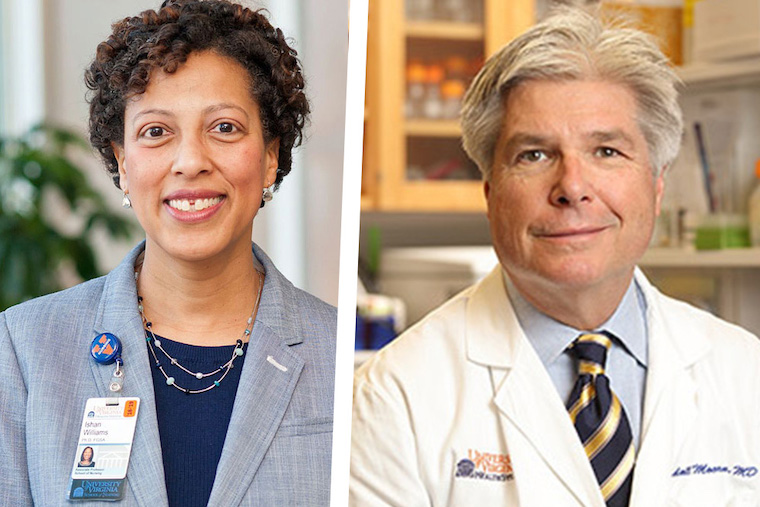Our Randall Moorman, MD, and Ishan Williams, PhD, have received almost $6 million from the National Institutes of Health to capitalize on the untapped potential of artificial intelligence to improve care for the most critically ill.
Dr. Moorman, a cardiologist at the School of Medicine, and Professor Williams, a social and behavioral scientist and dementia expert at the School of Nursing, will seek to use the vast amount of data produced during critical care to create an "AI dataset" that will improve that care and help providers identify patients at risk of taking a turn for the worse.
By looking at critical care numbers in the aggregate, the researchers can find ways to improve care for individual patients. For example, doctors might be tipped off that a patient battling cancer is about to suffer worsening pain by the patient's brain activity and rising body temperature. That could let the care team step in earlier to help better manage that pain.
The project will bring together scientists and clinicians across many different specialties to divine meaning from the vast haul of information generated during critical care. Their top priority is to ensure that AI data is trustworthy, actionable and equitable. The grant will also establish a consortium so that major medical centers and small hospitals and clinics alike will benefit.
Dr. Moorman and Professor Williams will work on the ambitious project with collaborators at Massachusetts General Hospital and the University of Florida, as well as colleagues from 14 biomedical and clinical organizations, industry and regulatory agencies across the nation.
Dr. Moorman is a real innovator in this area. He previously developed a predictive technology, CoMET, to improve care for COVID-19 patients and also invented the HeRO monitor to enhance care for premature babies.
